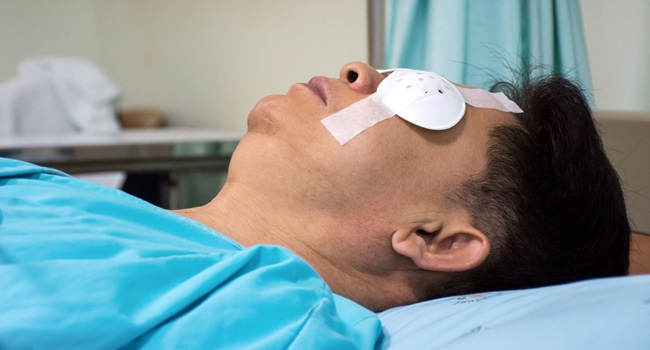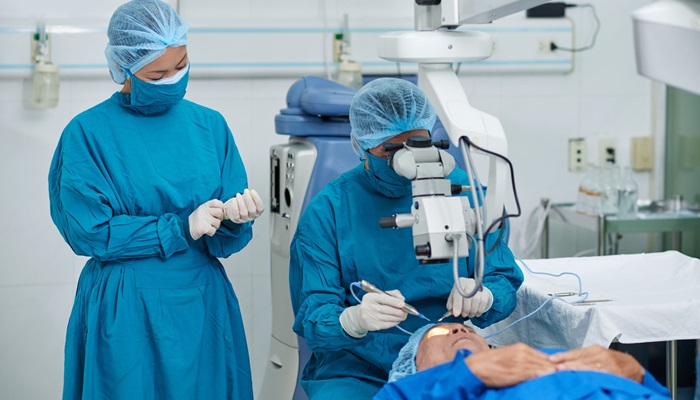Cataract surgery is one of the most common procedures performed today, helping countless individuals regain clear vision and improve their quality of life. Despite its high success rate and relatively simple nature, preparing effectively for cataract surgery and understanding the recovery process can significantly affect the outcome. Proper preparation can also reduce anxiety, minimize complications, and speed up recovery.
This article explores how to prepare for cataract surgery and recovery effectively.
Understanding Cataract Surgery: The Basics
Cataract surgery involves removing the clouded lens of the eye and replacing it with a clear artificial lens called an intraocular lens (IOL). The procedure typically takes less than an hour, and most patients return home the same day.
But here’s what the surgery entails and what you can expect:
- Pre-Surgery Examination: An eye specialist will conduct a thorough examination to measure the size and shape of your eyes and ensure a well-fitted IOL.
- Selecting the Right Lens: Different types of IOLs are available, ranging from monofocal lenses to multifocal options that correct multiple vision issues. As such, consulting your eye surgeon about the most suitable option is essential.
- Anesthesia and Sedation: The surgery is usually performed under local anesthesia with mild sedation, which helps keep the patient awake but comfortable.
By understanding these basics, you can make well-informed decisions, which minimizes surprises during the procedure. However, you might want to know more about this eye procedure. For instance, one of the most pressing questions for many people is the cost of cataract surgery in various regions.
Therefore, it’s crucial to understand the cataract surgery cost in Singapore or wherever you may be to gain clarity when budgeting for this critical health procedure. By knowing the options available and related expenses, you can decide about the treatment and aftercare.
Pre-Surgery Preparation: What to Do Before Cataract Surgery
The days and weeks leading up to cataract surgery are critical. Proper preparation can lower the risk of complications and promote a faster recovery. Key steps include:
Make Some Medical and Lifestyle Adjustments
It’s essential to share your medical history with your surgeon, including any medications you’re currently taking. Certain medications, particularly blood thinners, might need to be temporarily paused before surgery. Consulting with your primary care physician regarding any necessary adjustments is also beneficial when making medical and lifestyle adjustments.
Avoid Food and Drink
Surgeons advise patients to avoid eating or drinking anything after midnight on the day before surgery. This fasting rule is particularly important if sedation or anesthesia is used during the procedure.
Designate a Ride Home
Since cataract surgery can leave you temporarily drowsy, arranging for a trusted friend or family member to drive you home is crucial. Having someone available to support you immediately after surgery is recommended, as your vision may be blurry.
Follow Pre-Operative Instructions
Most eye specialists provide a list of pre-operative instructions, including any necessary eye drops to be used before surgery. These eye drops are usually antibiotics or anti-inflammatory drugs designed to reduce the risk of infection and inflammation.
The Day of Surgery: Key Points to Remember
On the day of your surgery, keep these essential points in mind to ensure a more favorable outcome:
- Wear Comfortable Clothing: Dress comfortably to avoid any restrictions on movement during or after the procedure.
- Leave Valuables at Home: Avoid wearing makeup, lotions, or perfumes, as these can introduce particles that may affect the surgical area.
- Arrive Early: Arriving early allows time for pre-operative steps, such as confirming paperwork and administering initial eye drops.
Following these guidelines can ensure a smooth, stress-free experience on the day of the procedure.
What to Expect After Cataract Surgery: The Initial Recovery Phase

The recovery phase after cataract surgery is typically smooth but requires careful adherence to aftercare instructions. Here are the immediate steps to follow:
Take It Easy
Rest is crucial on the day of the surgery. While some patients may feel a natural urge to engage in daily activities, taking it easy can help avoid unnecessary strain on the eye.
Use Protective Eyewear
Most surgeons recommend wearing an eye shield during sleep for at least the first few nights. Protective sunglasses are also advisable when stepping outside, as eyes may be sensitive to light post-surgery.
Administer Prescribed Eye Drops
Eye drops are an essential part of the post-operative care routine. These typically include antibiotics to prevent infection and anti-inflammatory drops to reduce swelling. Consistent use as prescribed can significantly aid in recovery.
Limit Physical Activity
Avoid strenuous activities, including heavy lifting and bending over, for the first week following surgery. Physical strain can put unnecessary pressure on the eye, potentially interfering with healing.
Avoid Water Exposure
Keep water out of the eye during the first week of recovery, including from showers or baths. This precaution can help reduce the risk of infection.
Long-Term Recovery: Gradual Steps Toward Full Vision Restoration
Full recovery from cataract surgery can take several weeks, during which vision gradually improves. The following steps can help achieve optimal results:
Attend Follow-Up Appointments
Your eye surgeon will schedule several follow-up appointments to monitor healing and ensure there are no complications. These visits are critical, as they allow the surgeon to detect and address any issues early.
Avoid Eye Strain
Avoiding screens, reading, or any activity that requires intense focus can minimize strain on the healing eye. Consider gradually reintroducing these activities under the guidance of your surgeon.
Stay Hydrated and Eating Well
Maintaining a healthy diet rich in antioxidants, such as leafy greens and fruits, supports eye health. Drinking plenty of water also promotes faster healing by keeping tissues hydrated.
Final Thoughts
Preparing effectively for cataract surgery and recovery is vital to ensure a successful outcome. By keeping the information mentioned above in mind, you can achieve optimal vision improvements and enjoy lasting results.


















